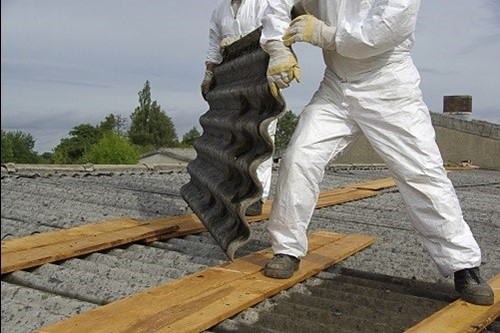The government has rejected recommendations to remove all asbestos from public and commercial buildings within a timeframe of 40 years.
News
Government refuses to support asbestos removal plan
In its report, published in April, the Work and Pensions Committee highlighted how despite asbestos being banned more than two decades ago, the material remains in around 300,000 non-domestic buildings. There were more than 5,000 asbestos-related deaths in 2019, including from cancers such as mesothelioma.
Stephen Timms MP, chair of the Committee, said that setting a target for asbestos removal was essential as part of a new strategy: “This strategy should prioritise the highest-risk buildings and urgently boost the evidence base for the safe removal and disposal of a material that is still the single greatest cause of work-related fatalities in the country.”
 Critics accuse the government of 'looking the other way' on the asbestos problem. Photograph: iStock
Critics accuse the government of 'looking the other way' on the asbestos problem. Photograph: iStock
In its response, the government said: “GB currently has a mature and comprehensive plan to managing legacy asbestos risks.”
It said owners of public buildings are already required to plan for safe removal of asbestos where necessary.
Thompsons Solicitors deals with people whose lives have been tragically cut short by asbestos exposure.
Tony Hood, its national head of asbestos strategy, called the government’s dismissal of the DWP Inquiry “an insult to each and every one of them”.
“Unfortunately, despite asbestos being the biggest industrial killer in the UK, rather than seizing the opportunity to bring about real change or inject any meaningful new funding, the government has chosen to look the other way, and the tragic result will be more unnecessary deaths and more grieving families.”
Other proposals were for HSE to create a central register of asbestos in public buildings, describing its location and type, starting with schools and hospitals. In the response, HSE dismissed the idea because it would duplicate the work dutyholders should already be doing.
Government response to asbestos management report here
NEWS

Nearly half of UK workers afraid to flag risks, finds new research
By Belinda Liversedge on 10 February 2026
A significant “silence gap” is threatening UK workplace safety and operational integrity, according to new data released by training provider Mental Health First Aid (MHFA) England.
Sexual misconduct in dentistry: former GDC fellow warns of ‘culture of silence’
By Belinda Liversedge on 05 February 2026
A former General Dental Council (GDC) clinical fellow is calling for a radical shift in how the dental sector manages workplace risk, warning that a “culture of silence” is masking the problem of sexual misconduct in the profession.

Tinnitus UK demands national safety standard as live music workers face hearing loss epidemic
By Belinda Liversedge on 03 February 2026
Tinnitus UK is calling for clear, enforceable standards on hearing protection and training after a staggering 93 per cent of live music workers report hearing problems.



